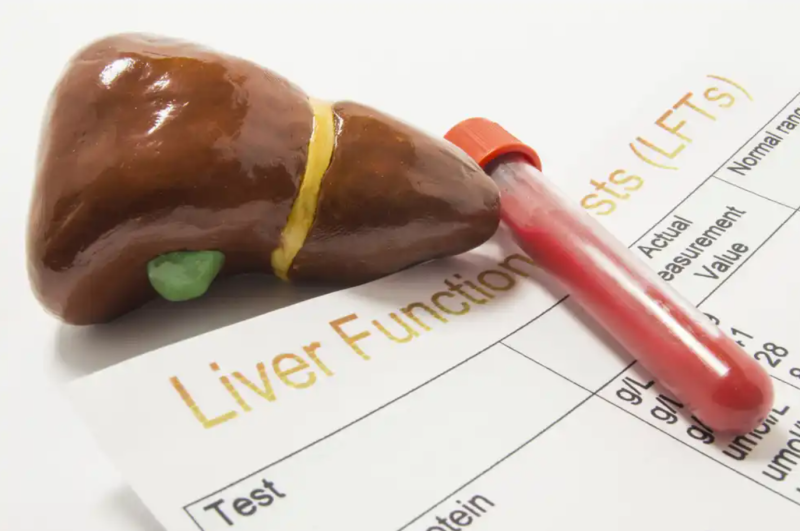
Alkaline phosphatase is an enzyme found in our body. We find it, especially in the liver and bone tissue.
In this article, we detail the five causes that cause elevated alkaline phosphatase. We will be able to discover some diseases that are related to this imbalance.
Contents
alkaline phosphatase
Alkaline phosphatase is an enzyme found in most body tissues. However, it predominates in the liver, bile ducts, and bone tissue.
In addition, it is distributed in various forms. All these can be quantified separately if required through a blood test. Average values are described in a range from 30 to 140 IU/L.
What is the alkaline phosphatase test?
The test is performed routinely or due to symptoms such as nausea, vomiting, weakness, decay, weight loss, jaundice, itching, abdominal pain and bloating, and dark-colored urine or light-colored stools.
Joint pain, elongated or deformed bones, or frequent fractures would be observed in the case of bone symptoms.
The procedure is straightforward. It takes a minimum blood sample for analysis and does not require fasting unless the doctor has requested other tests. Elevated alkaline phosphatase levels could indicate liver or bone damage.
Five causes that increase alkaline phosphatase
Among those that can alter this enzyme above normal levels, it is counted as a fracture recovery, vitamin D deficiency, or alcoholism. Below we detail the causes that can elevate it.
1. Liver diseases
 Alkaline phosphatase values can be altered and raised as a consequence of different liver diseases, according to this study by Dr. J. Sánchez Rodríguez. This is the case, for example, of viral hepatitis, in which transaminases are increased and this enzyme. This is due to inflammation of the organ and overproduction of bilirubin.
In the same way, it usually happens in other acute diseases, such as obstruction of the bile ducts in cholecystitis—also, chronic diseases such as liver cirrhosis or liver cancer’s consequences.
Alkaline phosphatase values can be altered and raised as a consequence of different liver diseases, according to this study by Dr. J. Sánchez Rodríguez. This is the case, for example, of viral hepatitis, in which transaminases are increased and this enzyme. This is due to inflammation of the organ and overproduction of bilirubin.
In the same way, it usually happens in other acute diseases, such as obstruction of the bile ducts in cholecystitis—also, chronic diseases such as liver cirrhosis or liver cancer’s consequences.
2. Bone diseases
One of the bone diseases that points to the elevation of alkaline phosphatase is Paget’s disease, according to this study from Washington University in St. Louis (Missouri). In this pathology, the bones are characterized by progressive deformation and widening. However, when the pathology is controlled, the levels return to regulation.
This enzyme is also increased in certain cancers that metastasize or invade bone. As in the previous case, the values can return to their normal range if they have timely and effective treatment.
3. Tumors

One of the tumors or neoplastic processes that affects the elevation of alkaline phosphatase is Hodgking’s lymphoma. This is a characteristic tumor of the lymph nodes that increases the levels of this enzyme.
As part of the involvement of lymphoma, there is an imbalance in liver function. This causes the alteration of the values of alkaline phosphatase.
However, this laboratory finding begins to be noticed in the advanced stages of the disease. Therefore, it implies that it is a sign of seriousness when you are in severe phases of this condition.
Other tumors that are alkaline phosphatase producers are cancers of:
- Lung.
- Ovary.
- Prostate.
- Pharynx.
- Testicles.
- Also, leukemias, which are given from lines similar to lymphoma.
4. Pregnancy
From the third trimester, the placenta in the mother is a producer of the enzyme alkaline phosphatase. This influences the general maternal values and increases them above the normal range, reaching 140 to 250 IU/L.
However, as it is a physiological condition, this enzyme increase does not cause alarm if it is treated from the beginning since it usually disappears after childbirth, according to this research carried out by the Ramón y Cajal University Hospital (Madrid ). In this case, it is a substance required for synthesizing proteins and calcifying bones and cartilage in the fetus.
The problem will be if the enzyme levels persist in those high ranges after birth. That is when it would be necessary to look for what other causes should cause it.
5. Specific medications
 Many of the medications indicated, even for day-to-day illnesses, have the characteristic of increasing the visible alkaline phosphatase enzyme. Among the drugs that frequently have this effect as part of their action are:
Many of the medications indicated, even for day-to-day illnesses, have the characteristic of increasing the visible alkaline phosphatase enzyme. Among the drugs that frequently have this effect as part of their action are:
- Antacids such as ranitidine.
- Antiepileptics and anticonvulsants such as phenytoin and carbamazepine.
- Macrolide antibiotics such as erythromycin.
- Calcium channel-blocking antihypertensives, such as verapamil.
Therefore, when visiting the doctor, each patient must know about their medications. In this way, you can anticipate the increase in alkaline phosphatase and not think about possible diseases that may increase such values. This is achieved with a good medical history and a relationship between the doctor and the patient.